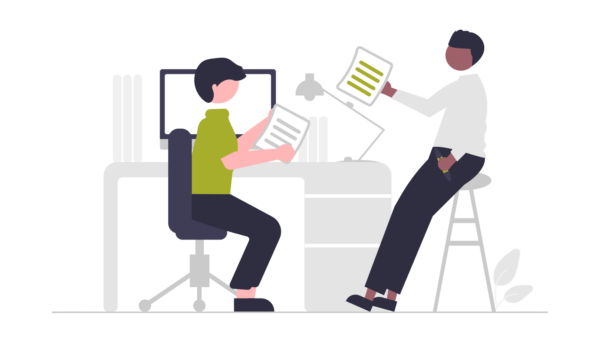Germany is one of Europe’s strongest and leading economies and continues to attract skilled professionals from around the world. Many foreign skilled workers decide to pursue an international career in Germany through the study route. This gives them ample time to integrate and understand the labour market and application procedure. But a large number of skilled migrants also relocate with a job offer or a valid employment contract from a registered German employer.
If you are a non-EU, EEA or Swiss citizen and want to relocate and work in Germany, you need a job offer from a registered German employer and a valid work permit. This guide explains the main visa types, requirements, and steps – and shows how terratalent can support you throughout the process.
Who Needs a Work Permit in Germany
- EU/EEA and Swiss citizens: No work permit required. You can work freely in Germany.
- Non-EU and third country nationals: A residence title that allows employment is required, such as a general work visa, EU Blue Card, or Opportunity Card.

Types of Work Permits in Germany
Before starting your career in Germany, it is important to know which work permit fits your profile. Each permit type has its own requirements and benefits for international professionals.
- Opportunity Card (Chancenkarte): The Opportunity Card allows qualified professionals from non EU countries to enter Germany and search for a job for up to one year. Eligibility is based on a points system that considers education, work experience, language skills, age, and ties to Germany. Once employment is found, the visa can be converted into a work permit.
- EU Blue Card: The EU Blue Card is designed for highly qualified professionals with a recognized university degree and a concrete job offer in Germany. Applicants must meet a minimum salary threshold, which varies by sector. The Blue Card offers a fast track to permanent residence and allows family members to join more easily.
- General Work Visa: This visa applies to skilled workers with vocational qualifications or university degrees who already have a job offer in Germany. The employment must match the applicant’s professional background, and the employer may need approval from the Federal Employment Agency (Bundesagentur für Arbeit).
- Job Seeker Visa: This visa allows professionals to stay in Germany for up to six months to search for a suitable job. It requires proof of qualifications, sufficient financial means, and basic German language skills. Once a job is secured, applicants can apply for a work permit or residence title.
- Intra Company Transfer and ICT Card: This permit is for employees of multinational companies who are temporarily transferred to a branch or subsidiary in Germany. It applies mainly to managers, specialists, or trainees and is valid for the duration of the assignment.
- Freelance and Self Employment Visa: Professionals who wish to work independently can apply for a freelance or self-employment visa. Applicants must show relevant experience, a viable business plan, and proof of financial stability. Certain professions such as artists, consultants, or IT specialists often use this route.
Requirements for a Work Permit in Germany
Germany has clear rules for granting work permits to foreign professionals. Meeting these requirements is the first step toward a successful application and long-term career in Germany.
In most cases, you need:
- A recognized degree (Use Anabin or apply for ZAB) or vocational qualification
- An employment contract or job offer (except for the Opportunity Card)
- Proof of financial means for living costs before your first salary
- Valid health insurance
- Sometimes approval from the Federal Employment Agency (Bundesagentur für Arbeit)

Application Process
The application process for a German work permit is straightforward but requires careful preparation. Understanding each step in advance helps ensure a smooth and successful submission.
- Secure a job offer (or apply via Opportunity Card).
- Prepare documents: passport, certificates, contract, CV, proof of funds, health insurance.
- Submit your application to the German embassy/consulate in your country or apply online.
- Visa processing usually takes 4 to 12 weeks but may take longer during peak application periods.
- Arrival in Germany: register your address and obtain a residence permit at the local immigration office.
How terratalent Helps You Get Your Work Permit
The process may seem complex, but with the right guidance it becomes much easier. terratalent specializes in helping international professionals secure their work permits in Germany.
With our support, you benefit from:
- Document check: We review your qualifications and ensure they meet German recognition standards.
- Application guidance: We prepare you for embassy appointments and help with the required forms.
- Visa and permit Application support: From the first visa application to the final residence permit in Germany, we guide you through each step.
- Post-arrival assistance: We support you with address registration, opening a blocked account, and converting your visa into a work permit.
With terratalent, you don’t face the process alone. We make sure your move to Germany is smooth, compliant, and successful.

What opportunities does a work permit offer?
Holding a German work permit over time is a strong step toward a long-term stay. It can lead to permanent residence and later to citizenship.
Work permit duration
- Residence permits for qualified employment are issued for up to four years.
- If your contract is shorter, the permit matches your contract plus three months.
Path to permanent residence (settlement permit)
- Skilled workers can qualify after three years of holding a work-based residence title.
- If you completed a German degree or vocational training, the period can drop to two years.
- EU Blue Card holders can qualify after 27 months with basic German or after 21 months with B1 German.
Citizenship timeline
Naturalisation is generally possible after five years of lawful residence if you meet all requirements, such as language, financial stability, and civic knowledge.
Tip for readers
Keep copies of contracts, payslips, pension contributions, health insurance proof, and language certificates. These documents are often required when you apply for a settlement permit or citizenship
Why Work in Germany?
Germany continues to stand out as one of the best places in the world to build a stable and rewarding career.
The country offers a strong job market with a consistent demand for skilled professionals across industries such as engineering, healthcare, IT, logistics, and business services. Employers are actively seeking international talent to fill critical skill gaps, creating real opportunities for qualified candidates.
Professionals benefit from attractive salaries and comprehensive benefits, including health insurance, pension contributions, paid holidays, and job protection. Work contracts are transparent and designed to ensure fairness and long-term security.
Germany also provides a clear pathway to permanent residence and citizenship, allowing professionals who work and live in the country to secure their future and establish a stable life.
Beyond work, Germany offers a high quality of life in a safe, modern, and centrally located European environment. With efficient transport, excellent healthcare, and a rich cultural scene, life in Germany is both fulfilling and balanced.
Finally, once the contractual probation period is completed, employees enjoy strong job security and legal protection under Germany’s employment laws—giving professionals the confidence to grow and plan for the long term.
Working in Germany is more than just a career move; it is a chance to grow, integrate, and be part of a system that values skill, fairness, and stability.
terratalent: Your Partner in the Journey
If you are ready to start your career in Germany, terratalent is here to guide you through our Career Launchpad Service. From finding the right job offer to securing your work permit, our experts ensure every step is clear and achievable. With us, your future in Germany begins with confidence.
About the author

